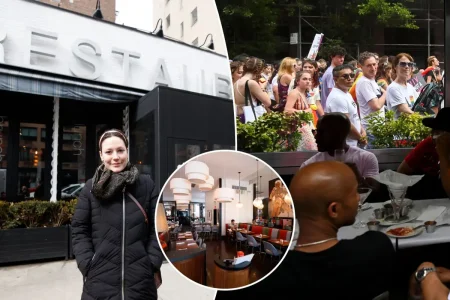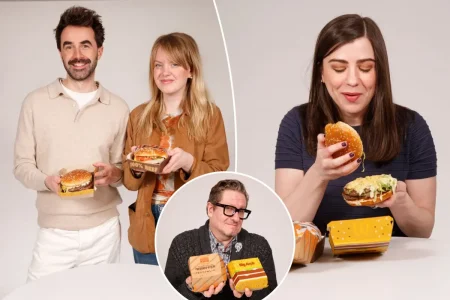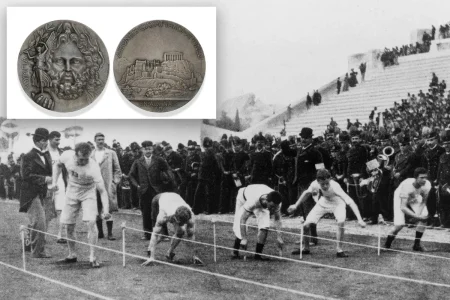The $3.25 First Date Controversy: When Splitting the Bill Goes Too Far
In today’s dating landscape, the question of who should pay on a first date continues to spark heated debates across social media platforms. Recently, a 28-year-old woman’s Reddit post went viral after she shared a particularly bizarre post-date interaction that left many questioning modern dating etiquette. Her story, which garnered over 11,000 upvotes, resonated with countless individuals who have experienced similar situations, highlighting how small financial gestures can reveal significant character traits in potential partners.
The date itself seemed ordinary enough—the pair shared burgers and fries at a casual restaurant. When the bill arrived, the man paid for the meal while the woman graciously offered to cover the tip, creating what appeared to be a balanced financial arrangement. However, the following morning took an unexpected turn when she awoke to find a Venmo request for $3.25 with the simple note “half the fries.” Initially believing it to be a joke, the woman was stunned to discover her date was completely serious about recouping this nominal amount. When confronted about this peculiar request, the man defended his actions by claiming “it’s about fairness” and dismissively stating “that’s just how he is.” Understandably, the woman felt insulted by this petty behavior and immediately decided against pursuing any further relationship with him, sharing her experience online as a cautionary tale for others navigating the complex world of modern dating.
The Reddit community’s reaction was overwhelmingly supportive of the woman, with thousands of commenters identifying the Venmo request as a glaring red flag. Many pointed out that the trivial sum of $3.25 revealed something far more significant than frugality—it demonstrated a concerning value system where a few dollars took precedence over making a good impression or investing in potential connection. As one particularly insightful commenter noted, “Anyone with a brain knows that requesting three bucks back will 100% guarantee no future date. He’s telling you the $3 is more valuable than your company.” This observation cuts to the heart of why such behavior feels so offensive; it’s not about the money itself but rather what such actions communicate about how someone values—or devalues—your presence in their life.
Beyond mere stinginess, many commenters connected this type of behavior to deeper psychological patterns involving control, entitlement, and transactional approaches to relationships. One user shared a similar experience, noting how their date became noticeably petty after being denied physical intimacy, suggesting these financial demands often emerge as passive-aggressive responses to unmet expectations. Particularly troubling to many readers was the man’s justification—”That’s just how I am”—a phrase commonly recognized as a red flag that someone is unwilling to reflect on or adjust problematic behavior. This dismissive explanation reveals an inability or unwillingness to consider how one’s actions affect others, a trait that would likely manifest in countless other ways throughout a relationship. Rather than acknowledging the woman’s feelings or considering how his actions might be perceived, he placed the burden on her for “overreacting,” demonstrating a concerning lack of emotional intelligence that would certainly create larger issues down the road.
This viral story is far from an isolated incident in the modern dating scene. Another notable example came from Brazilian influencer Rosana Ferreira, who shared her experience with a date who insisted she pay half of their modest $8 juice tab. Despite the small amount, Ferreira recognized this behavior as indicative of something deeper than financial prudence. “If he can’t invest in a juice, how will he invest in a relationship?” she questioned, astutely identifying that such interactions reveal fundamental attitudes toward partnership and investment. As Ferreira eloquently stated, “It’s not about the money; it’s about the attitude”—a sentiment that perfectly encapsulates why these seemingly minor financial interactions generate such strong emotional responses. These stories demonstrate how first date financial interactions often serve as microcosms of how someone might approach a relationship more broadly, revealing their generosity, respect, and willingness to invest emotionally as well as financially.
What makes these stories particularly resonant is how they transcend simple questions of financial etiquette and expose deeper truths about human connection in the digital age. In an era where relationships increasingly begin and end through apps and payment requests, these financial exchanges become loaded with meaning and significance beyond their monetary value. The viral nature of these stories speaks to a collective anxiety about navigating romance in a world where everything—even emotional connections—can feel increasingly transactional. Yet the overwhelming response to these stories also reveals a widespread consensus: while opinions may vary on who should pay for what on a first date, most people agree that pettiness over negligible amounts reflects poorly on character and indicates potential problems ahead. Whether splitting a bill equally or taking turns treating each other, most daters are looking for generosity of spirit rather than exact financial accounting—someone who approaches relationships with openness rather than keeping a detailed ledger of every expense. In the end, how someone handles a $3.25 order of fries might just tell you everything you need to know about how they’ll handle your heart.














